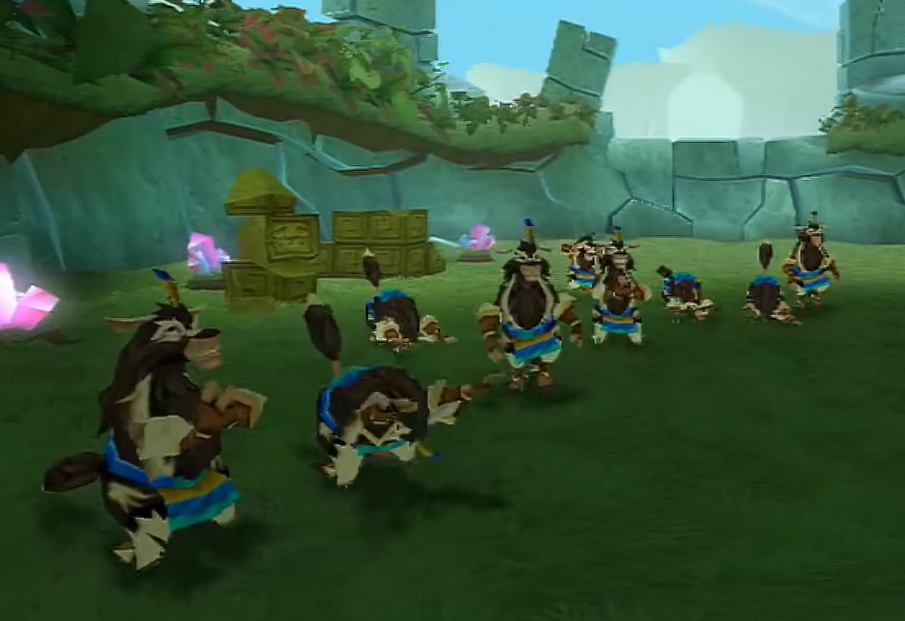Welcome to the Spyro Wiki's new home world!
Feel free to rewrite and expand the articles and upload images that are missing.
Atlawa
| Atlawa | |||
|---|---|---|---|

| |||
| World | Tall Plains | ||
| First appearance | The Legend of Spyro: A New Beginning (2006) | ||
| |||
- “Tall Plains was once home to a proud ancient tribe called the Atlawa. [...] The Atlawa were a people in tune with the rhythms of the seasons, focused on their relationship with crops, their surroundings, their gods.”
- – Ignitus, The Legend of Spyro: A New Beginning
The Atlawa, also called Atlawas, are the camelid natives that reside in Tall Plains who only appeared in The Legend of Spyro: A New Beginning.
Charactertistics
Physical Appearance
The Atlawa resemble bipedal llamas or llamas wearing sparse, colorful attire in brown, blue and yellow.
Lifestyle
The Atlawa are a proud people who lived in tune with the rhythm of the seasons. Each day, the Atlawa thrive to improve their relationship with their land, crops, and their gods.
Story
The Atlawas were driven underground when Cynder and her minions took over Tall Plains. They were later freed after Spyro was forced to fight the Stone Sentinel, a creature worshiped by the native Atlawas as a god that became angered at having its resting place disturbed by Cynder. In response, the Atlawas wanted to worship Spyro for saving them, but the young dragon rejected the offer, and the inhabitants in turn accepted Spyro as one of them.
Trivia
- One of the captured Atlawas, called Luggs by the Krome Studios development team, was notably the Atlawa who was carried off by one of Cynder's Tall Plains Dreadwings.[1]
- The Atlawas were largely inspired by Aztecs.[2]
References
- ↑ From The Dragon's Vault...Something for the Fans. (Date Posted - Oct. 2, 2010). Blogger.
- ↑ a b c TLoS StoryScroll EarthGuardian. (Date Posted - Apr. 16, 2016). DeviantArt.
[Edit] The Legend of Spyro: A New Beginning
| ||
|---|---|---|
| Characters | Protagonists | Spyro • Sparx • Ignitus • Volteer • Cyril • Terrador |
| Supporting | Exhumor • Flash • Kane • Mole-Yair • Nina | |
| Villains | Conductor • Cynder • Dark Master | |
| Enemies | Angler Fish • Ape (Soldier • Leader • Commander) • Armadillo • Assault Turret • Buffalo Beetle • Bulb Spider • Crystal Brute • Conduit • Disciple • Dojo Dummy • Dreadwing • Electric Leech Fire Beetle • Frog Weed • Growth • Magma Worm • Nataloid • Ogre • Troll • Troll Horseman • Rubble Brute • Spider Tank • Super Fire Cannon | |
| Bosses | Ice King • Stone Sentinel • Steam • Electric King • Cynder | |
| Levels | Swamp • Dragon Temple (Dojo) • (First Flight) Dante's Freezer • Tall Plains • Munitions Forge (Escape From Cynder) • Concurrent Skies • Convexity | |
| Elements | Fire • Electricity • Ice • Earth • Aether | |
| Species | Ape • Atlawa • Dragon • Dragonfly • Manweersmall • Troll | |
| Other | Cheat codes • Gallery • Soundtrack | |
